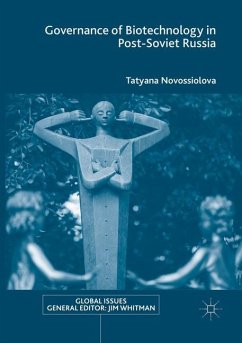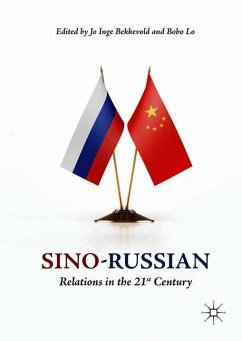
The Implications of Ethnic Politics in Post-Socialist States for China

PAYBACK Punkte
53 °P sammeln!
This book examines the intricate and under-explored dynamics of ethnic politics in post-socialist states and their implications for China. While focusing on the political, cultural, and ethnic landscapes of Central Asia and their connections to China, the volume highlights how shared historical legacies and emerging geopolitical realities shape ethnic policies and state relations. Contributions from scholars based in the UK, Kazakhstan, and China provide a comprehensive analysis of key issues, including the influence of post-Soviet ethnic politics on China's governance of its own minority regi...
This book examines the intricate and under-explored dynamics of ethnic politics in post-socialist states and their implications for China. While focusing on the political, cultural, and ethnic landscapes of Central Asia and their connections to China, the volume highlights how shared historical legacies and emerging geopolitical realities shape ethnic policies and state relations. Contributions from scholars based in the UK, Kazakhstan, and China provide a comprehensive analysis of key issues, including the influence of post-Soviet ethnic politics on China's governance of its own minority regions, the challenges of nation-building, and China's growing geopolitical presence in Central Asia.












